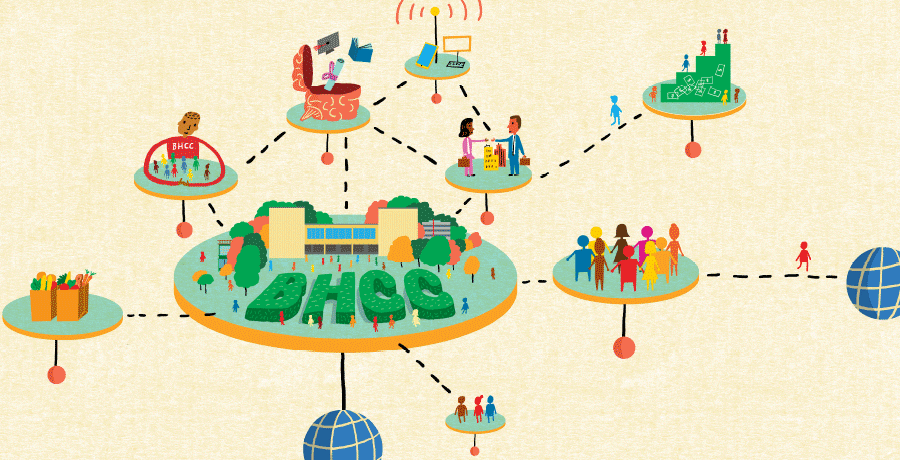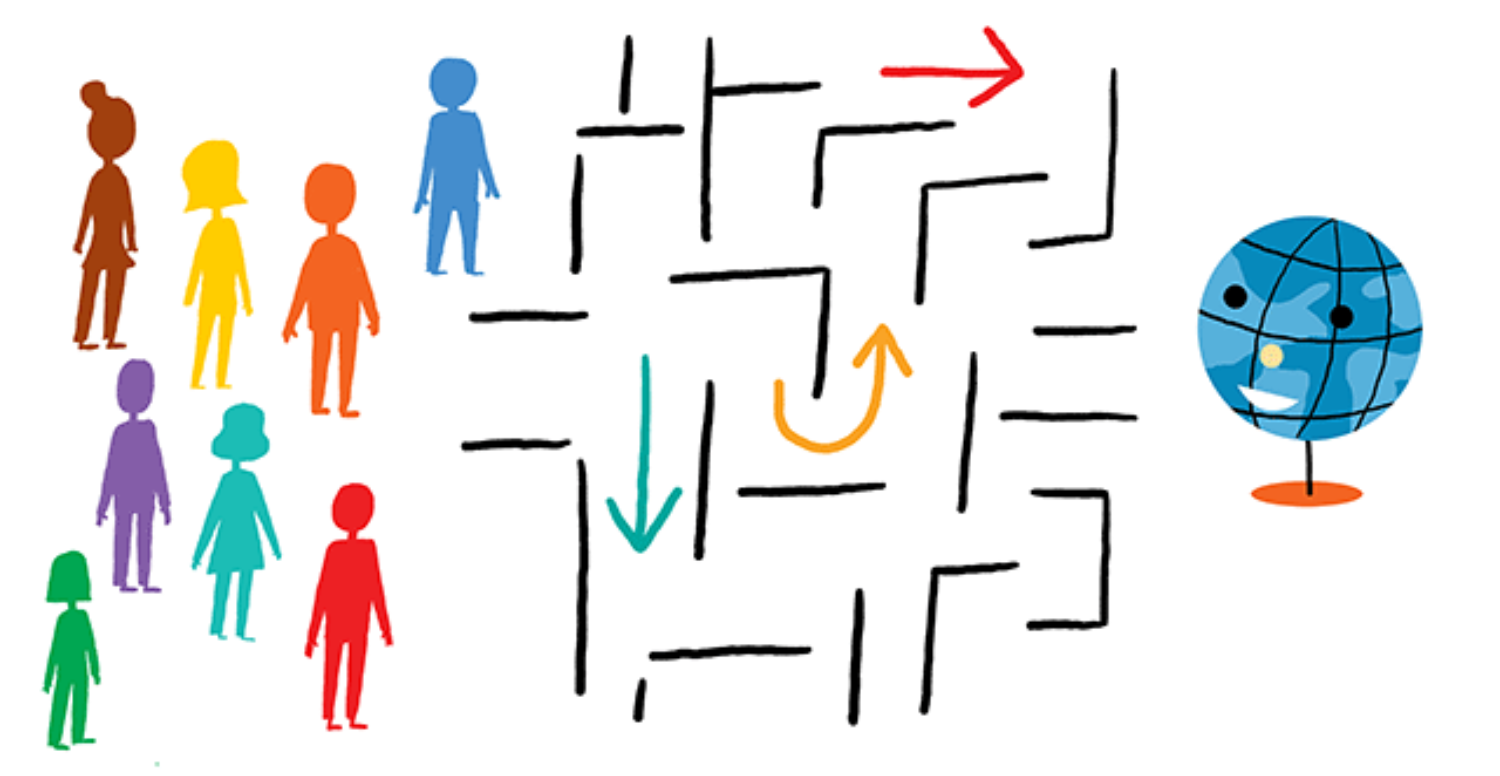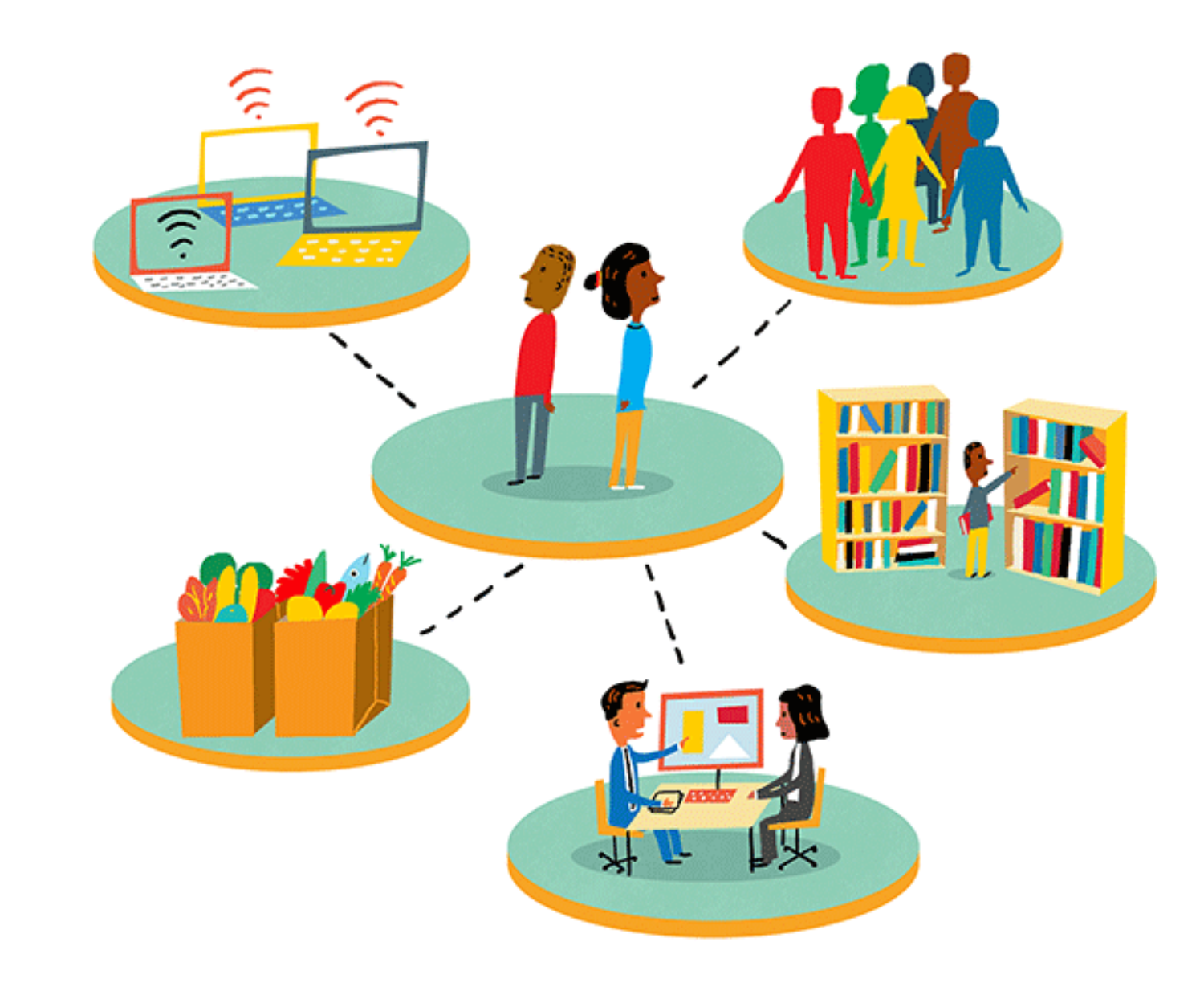
Unlocking Potential
The Vision of the Community College Hub
Insights from the Pandemic
In the past year, community colleges have witnessed the disintegration of systems and values that have strengthened institutions over the last quarter century. Through the darkness of the pandemic and the clouded history of racism and systemic deprivations, Bunker Hill Community College President Pam Eddinger witnessed not only the power of the student success movement, but the emergence of a transformation that promises a new vision of “community” in community college—a new social contract with the students and the community it serves.
President Eddinger delivered “Insights from the Pandemic” at the Annual Dallas Herring Lecture
BHCC President Pam Eddinger presented “Insights from the Pandemic: The Reckoning and the Hope at Our Nation’s Community Colleges,” at the William Dallas Herring Lecture in November 2020. In her discourse, she advanced a renewed vision of the community college as an educational, economic and social hub of the community.
The Herring Lecture is an annual event hosted by the North Carolina State University College of Education’s Belk Center for Community College Leadership and Research in honor of the visionary, who was instrumental in the formation of the North Carolina Community College System. Herring was driven by his abiding belief in the potential of all beings to contribute to the progress of humankind. In advocating for community colleges, he asked politicians not to underestimate the poor and the underserved and to recognize they are human beings with immense capacity for creatively contributing to the progress of civilization. This feature captures highlights of President Eddinger’s lecture.
-Pam Eddinger
Community Colleges Before the COVID-19 Pandemic
Prior to the pandemic, the Community College Success Movement and its mission-driven research were a dominant force centered on improving persistence and degree completion, and closing achievement gaps in marginalized populations. The movement has grappled with these areas of inquiry for more than two decades, producing a number of different conceptual frameworks and analyses and an abundance of pedagogical and technical solutions, from assessment and accountability in the early 2000s, to the College Scorecard and Completion Agenda of the Obama Administration in the following decade, to the more recent introduction of the Guided Pathways concept.
These frameworks and solutions reflect the long-standing mission and collective belief of community college educators that all students have the potential to learn and succeed, and sets the expectation that the attainment gap is bridgeable between white, economically advantaged students, and students at the margins; that students of color, first generation students, and students caught in generational poverty can achieve academic success. It also implies a promise—a social contract—that academic success will lead to social and economic mobility, and that social and economic equity is imaginable and reachable.
Community colleges have invested in everything from professional development for teaching and learning, to growing the next generation of leadership, more focused data analyses, targeted case management and advising, technology-enhanced predictive analytics, technology-enhanced services and supports with only modest results.
A Stark Lesson
It was in the midst of this push for answers about student attainment, and in the progression of our understanding about the factors affecting student success that the COVID-19 pandemic came on the scene in March 2020. Like a flash of lightning in the night, the pandemic revealed all the cracks and fissures hidden in the landscape, and gave us a stark and unsparing look at the cavernous wealth and attainment gap before us, in our Black and brown urban communities, in the immigrant communities of our Gateway Cities, and in our poor white communities in the rural regions. While the struggles of these communities are not new to educators in the field, the depth of the needs, as well as their systemic and entrenched nature, now shapes and informs a national conversation as never before.
77% of students fall within the two lowest quintiles of income; generational poverty is common. Three quarters of students work, many full-time. Three out of five are parents, half of the parents are single mothers. Last surveyed three years ago, 54% are food insecure; 14% are homeless.
The systemic deprivations predicated on race, on class, and on the persistent choice of private profit over public good has eroded our social contract. The optimism that fuels the mission of community colleges is obscured by the dismantling of social contracts in related sectors, in elementary and secondary education, in housing and transportation, in public health, in generational care. The hope of community colleges in lifting our students above the attainment gap, in restoring their social privilege and speeding their economic mobility, becomes fainter when the support network is frayed in so many other places. The lightning bore witness to its disintegration in the hometowns of our students.
Bunker Hill Community College serves students from Boston and the five Gateway Cities in the Greater Metropolitan Area. Like many large urban community colleges, 77% of students fall within the two lowest quintiles of income; generational poverty is common. Three quarters of students work, many full-time. Three out of five are parents, half of the parents are single mothers. Last surveyed three years ago, 54% are food insecure; 14% are homeless.
While the students know higher education is their path to economic and social mobility, college is not at the center of their lives. They are adults, with families to take care of. They are family strong and economically fragile; when money runs short, college gives way to family, jobs, and the urgency of survival.
-Pam Eddinger

When the pandemic hit, the needs were immediate, but the deprivations were long-standing. Community colleges have evolved over past decades to compensate for systemic disinvestment in our communities, building infrastructure on campus to address the lack of support resources in individual families and communities. BHCC has built libraries and study commons, computer labs with WiFi, dining commons, clinics, food pantries, community gathering spaces, offices of emergency services, emergency housing, mental health counseling, and many other social services that kept students connected.
With a promise of open access, and the availability of physical, social, and cultural support infrastructure, community colleges are the social and education hub for the communities served. The importance of this physical and social support was validated when campuses closed due to the pandemic. Without a place to call home, many students went adrift, and our focus shifted to replicating as much of the Hub as possible in a virtual environment.
In March 2020, BHCC pivoted 1,700 classes from in-person to remote, providing students with WiFi, Chromebooks, and laptops. When the College’s DISH Food Pantry closed its doors, the College partnered with a local nonprofit to deliver groceries to student’s homes, and mailed students grocery store gift cards.
Faculty worried about the physical and mental health of their students, and how they were caring for their school-aged children as they struggled with their own studies, and understood when students were unable to appear on video in class because they were embarrassed about their home environment.
Still, close to 800 students fell silent. Follow-up surveying showed that logistical challenges, a digital gap, and separation from social support were among the main reasons for their disengagement. Determined that a moment of academic disarray would not undermine a student’s achievements long-term, BHCC revised academic and financial policies temporarily to provide students with time to acclimate and complete their courses.
It does not take much to disrupt a learner’s journey—a sick child, a lost job, a bad WiFi connection. The pandemic revealed what educators attuned to their local communities have known for a long time; that equity or fairness are rare commodities in the marginalized communities we serve; that our students are economically fragile despite their resilience.

The Vision of a Just Recovery and the Community College Hub
Community colleges are the social, economic, and educational hubs for our communities. They are no longer a stand-alone educational institution. As much as the COVID lightning has revealed the failure of our social and economic systems in serving our communities of poverty and communities of color, it has also shown us a radical transformation in the nature of community college as holistic equity-minded institutions promoting community engagement, economic mobility, and ultimately, social equity.
The crack of lightning that was COVID lit up the inhumane conditions in our communities, and brought to a crisis point the systemic failures long fed by racism and marginalization of the poor. Difficult as it is to witness the misery and urgent need, BHCC will seize this moment of clarity to think anew about the role of colleges in our community, and how we can be agents of change in the coming decade. We will explore the changing future of the Hub—as a place of convergence, a place of revolution, and the home of a new social promise with our students, to honor their histories, to activate their potential, and claim their place in the world.
As we look forward toward a post-pandemic recovery, BHCC will remain committed to unlocking potential for our students by providing access and ensuring equity in post-secondary education across a full range of options—from non-credit workforce training to credit-bearing associate degrees and certificates.
Chief Equity and Compliance Officer Nahomi Carlisle Joins BHCC
 Bunker Hill Community College welcomed Nahomi Carlisle, Esq., to the position of Associate Vice President, Chief Equity and Compliance Officer, Affirmative Action Office, and Section 504/ADA Coordinator at the College.
Bunker Hill Community College welcomed Nahomi Carlisle, Esq., to the position of Associate Vice President, Chief Equity and Compliance Officer, Affirmative Action Office, and Section 504/ADA Coordinator at the College.
In this role Carlisle provides vision and leadership in the integration of equity and cultural wealth into all aspects of institutional life for students, faculty and staff, and will advocate on behalf of the College in forwarding the values of equity and inclusion in the community-at-large, and within the community college movement regionally and nationally.
Prior to joining BHCC, Carlisle served as the Director of Diversity & Inclusion/ADA Compliance for the Massachusetts Department of Public Health, where she oversaw internal compliance with the Affirmative Action / Equal Opportunity programs or the 3,000+ employee agency and acted as an integral part of the executive team on diversity and inclusion goals, program development and planning. She has practiced as an attorney for more than ten years with the legal background and experience to assist the College in its compliance work. She has a passion for diversity, equity, and inclusion, and has dedicated the last several years of her professional career to creating sustainable equity.

